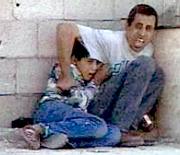12 Jul 2010 | Index Index, minipost
New laws enacted in Fiji permit the state to seize broadcasting equipment, documents, force journalists to reveal their sources and fine media organisations up to $100,000. The media industry development decree enacted on 28 June also requires newspapers to be 90 per cent locally owned. This stipulation could force a number of publications to close. The new laws follow 2009 government legislation that legalised the arbitrary vetting of broadcast stations and newspaper offices to ensure their editorial line is conducive with that of the Fijian leader Commodore Bainimarama.
12 Jul 2010 | Index Index, minipost
The Ecuadorian government commissioned a series of television adverts which accuse the private media of distorting the truth. Local reports claim that President Rafael Correa was deliberately portraying the private media in a negative light in anticipation of the final debate of the government’s telecommunications bill. The Inter-American Press Association (IAPA) claims that the new laws will foster prior censorship and authorise the state to commission a political organ with the power to punish the private media arbitrarily.
12 Jul 2010 | Index Index, minipost
Opposition newspaper Al Intibaha, was “suspended indefinitely” on Tuesday 6 July, according to the Sudanese Media Centre. The move comes ahead of January’s referendum on whether the north and south regions of Sudan should become independent states. The head of the Sudanese intelligent services says the closure designed to “contain the negative role played by the paper in strengthening separatist agendas in both south and north Sudan.” The editors of two other newspapers, Al-Tayyar and Al-Ahdath, were contacted by government authorities and forced to rescind articles about conflicts in the south. President Omar Hassan al-Bashir is against independence and has called for Sudan to remain united.
12 Jul 2010 | Middle East and North Africa, News and features
 It was the most iconic image of the second intifada: the killing of a Palestinian child. Ten years on, French libel courts are still settling disputes about what really happened at the Netzarim crossroads. Natasha Lehrer reports
It was the most iconic image of the second intifada: the killing of a Palestinian child. Ten years on, French libel courts are still settling disputes about what really happened at the Netzarim crossroads. Natasha Lehrer reports
Just over two years ago the French appeals court overturned a guilty verdict against Philippe Karsenty. The blogger was originally found guilty of libelling Charles Enderlin, the veteran French television correspondent whose report on the killing in September 2000 of 12-year-old Mohammed al Dura by an Israeli bullet has been the subject of controversy for a decade. Now Karsenty has won his own libel case against the broadcaster Canal + and the magazine L’Express.
In June this year, Canal + and TAC PRESSE, an independent television company, were found guilty of libelling Karsenty in a 2008 programme on the subject of media hoaxes. The programme drew parallels between the September 11 conspiracy theorists and Karsenty, who has spent almost 10 years challenging the veracity of Enderlin’s 2000 report for the state television station France 2. The court found that the failure of Stéphane Malterre, the documentary’s director, to make any mention whatsoever of the many doubts that have been raised about the original news report and which have been widely reported around the world — considerably more so than in France itself — constituted evidence of a lack of good faith on the part of the programme makers and the broadcaster Canal +, and justified Karsenty’s claim of libel.
An article by the journalist Vincent Hugueux, in the magazine L’Express, published the same day that Malterre’s documentary was broadcast, reiterated the accusation that Karsenty was a hoaxer.
In Rumeurs, intox: les nouvelles guerres de l’info….Stephane Malterre showed us various recent hoaxes, from the rantings after the September 11th attacks to the concerted attacks on the journalist Charles Enderlin.
…. The episode on the journalist Charles Enderlin, target of a campaign as loathesome and relentless as it is inept, had the merit of exposing two specimens in thrall to a pathetic form of nervous obsession: the historian Richard Landes and the Frenchman Philippe Karsenty.
On 1 July 2010, the presiding judge found in favour of Karsenty, L’Express was found guilty of libel. However, the judge rejected Karsenty’s claim for €25,000 damages, finding that Hugueux was influenced by the content of Malterre’s documentary and therefore had written his article in good faith.
In an interesting footnote to this long-running case, the judgment includes the following statement: “Philippe Karsenty acted in good faith by exercising his right to criticise Charles Enderlin for having broadcast a faked report.” Karsenty has made clear his satisfaction in this interestingly unequivocal statement, avowing in his own press release that the judgement will “be useful in the future because it confirms that France 2’s news report was phony and that [the] Canal + documentary was defamatory and manipulative enough to influence a journalist”. It seems highly unlikely that the judgment signals the end of this affair.
Natasha Lehrer is a writer and translator. She lives in Paris.

 It was the most iconic image of the second intifada: the killing of a Palestinian child. Ten years on, French libel courts are still settling disputes about what really happened at the Netzarim crossroads. Natasha Lehrer reports
It was the most iconic image of the second intifada: the killing of a Palestinian child. Ten years on, French libel courts are still settling disputes about what really happened at the Netzarim crossroads. Natasha Lehrer reports